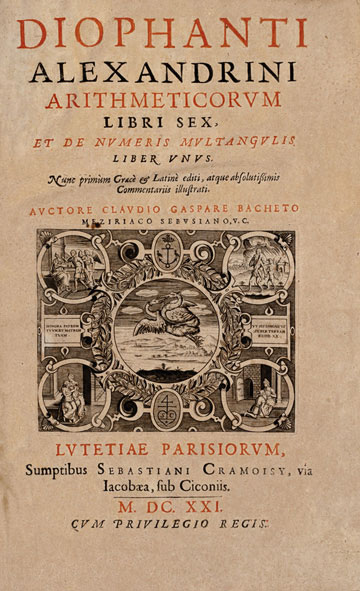Fermat’s Last Theorem

Cubum autem in duos cubos, aut quadratoquadratum in duos quadratoquadratos, et generaliter nullam in infinitum ultra quadratum potestatem in duos ejusdem nominis fas est dividere: cujus rei demonstrationem mirabilem sane detexi. Hanc marginis exiguitas non caperet.
When I read it
While tinkering with popular physics books (summer 2021), I realised I did not understand much about the maths they talked about. This is one of the books I picked up to address this curiosity.
Why I picked it up
Explained above
Interesting bits
The story
Shimura/Tanyiama conjecture
Galois’s genius and misfortunes
14-15 Puzzle (Sam Loyd)
Chapter “Into abstraction”
Hilbert, Frege, Goedel
Quotes
The word “philosopher”
Did Pythagoras coin the term philosopher and therefore philosophy?
Pythagoras replied “I am a philosopher” but Leon has not heard the work before and asked him to explain
Page 10
“Life, Prince Leon, may well be compared with these public Games for in the vast crowd assembled here some are attracted by the acquisition of gain, others are led on by the hopes and ambitions of fame and glory. But among them there are a few who have come to observe and to understand all that passes here. It is the same with life. Some are influenced by the love of wealth while others are blindly led on by the mad fever for power and domination, but the finest type of man gives himself up to discovering the meaning and purpose of life itself. He seeks to uncover the secrets of nature. This is the man I call a philosopher for although no man is completely wise in all respects, he can love wisdom as the key to nature’s secrets.”
Definition of the theorem
Cubum autem in duos cubos, aut quadratoquadratum in duos quadratoquadratos, et generaliter nullam in infinitum ultra quadratum potestatem in duos ejusdem nominis fas est dividere: cujus rei demonstrationem mirabilem sane detexi. Hanc marginis exiguitas non caperet.
There are no positive integers such that xn + yn = zn for n>2. I’ve found a remarkable proof of this fact, but there is not enough space in the margin [of the book] to write it.

Inspiration & Next
Together with Infinite Powers by Strogatz and 17 Equation that changed the World” by Stewart, I think I am done for now with maths and calculus specific books.
